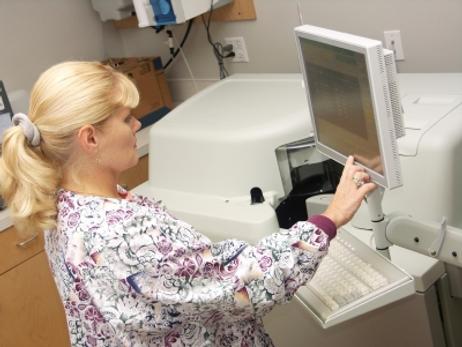Do you have a passion for caring for others? Are you looking for a career in which you can start relatively quickly? Certified Nursing Assistant programs are cropping up nationwide, thanks to stimulus funds designed to get people into the healthcare field as quickly as possible. In as little as three months, you can move from a student at a community college to a fully certified nursing assistant working in a hospital, nursing care center, or home setting.
While these programs are not new, additional funding from the stimulus package has allowed many community colleges to increase the number of certified nursing classes they offer. This means even more students can get on the fast track to a healthcare career that is much more stable than many other industries today. The short amount of time in school also means tuition savings for those who want to explore new career opportunities but don't have many extra funds to do so.
What is a Certified Nursing Assistant?
According to the Bureau of Labor Statistics, certified nursing assistants work in various settings, offering hands-on care to patients under the supervision of RNs and other medical staff. In some cases, CNAs may help patients eat, bathe, or perform other daily tasks. Some might also take patient vitals, including temperature, pulse, and blood pressure. They may assist the rest of the medical staff by moving equipment, setting up supplies, or assisting with some procedures.
This video describes the nursing assistant certification program at Bunker Hill Community College.
CNAs spend much of their days on their feet and must be prepared to perform various tasks at every shift. While the work can be demanding, it is also rewarding, and job security is not usually an issue in this line of work.
The average salary for a CAN is just over $11 per hour, but those with additional experience or education may make much more. CNAs can also continue their training to become RNs if they desire.
How to Become a CNA
To begin a CNA program, you must first have a high school diploma or GED. The next step is to find a certified nursing assistant program at a community college in your area. Many colleges today offer such programs due to the huge need for CNAs and the stimulus funds that have been provided to many community colleges just for this purpose.
You will probably need to complete on-site training and your coursework at a local healthcare facility during your CNA training. Once you receive certification in your field, you will be entered into your state's registry of nurse aids, allowing you to work in various venues. According to the Nursing Assistant Guides website, it is a good idea to check with your state on their requirements for licensure and certification before choosing your CNA program.
Colleges offering CNA Programs
Numerous colleges offer good nursing assistant certification programs nationwide, and many can be completed in just a few weeks. We have just three examples listed here:
- In North Carolina, Johnston Community College is just one of the institutions offering a quick certification program for nursing assistants. The Herald reports that program graduates are prepared to work in nursing homes or as personal caregivers after just three months of schooling. The course is also a prerequisite to a nursing degree, so students can easily continue their education to advance their careers in nursing.
- In Michigan, Lansing Community College offers a certification program for working as a nursing assistant. Students can opt for either the night program, which lasts 16 weeks, or the day school, which can be completed in as little as four and a half weeks. This allows adults to make a career change, even as they continue to work in their current jobs.
- Lane Community College in Oregon also offers nursing assistant certification, and this campus provides programs both for basic training and acute care. Each program costs less than $1,000 to complete, and day and night courses are also available to fit around every student's schedule. Clinical hours are also included in the coursework, and after finishing the program, students are prepared to take the Oregon State Board of Nursing certification exam.
This video describes the CNA program at Howard Community College.
Many options are available today if you are interested in a healthcare career. The training is relatively quick, salaries are competitive, and the job field is wide open. Thanks to additional funding from the stimulus package, many students are finding they can begin their nursing career in just a matter of weeks, with certification from one of the many community colleges across the country offering a certified nursing assistant program.
Questions? Contact us on Facebook. @communitycollegereview















